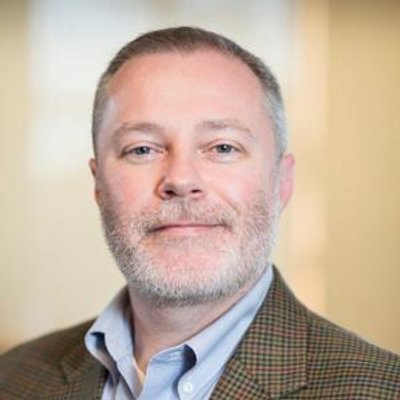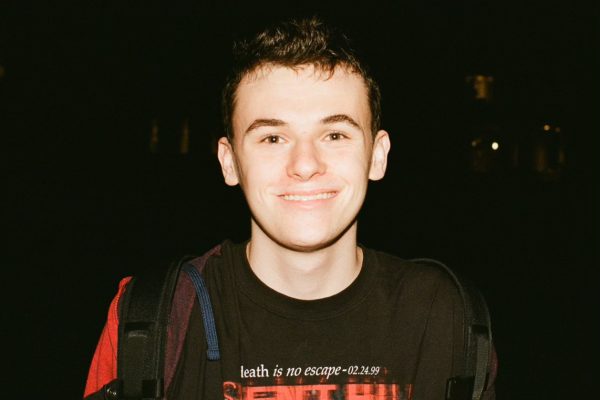Frequent readers of Mac Daily may have noticed that one Macalester professor has become something of a publication mainstay. Since 2021, Political Science Professor Andrew Latham has consistently contributed to a number of media outlets across the globe. A scholar of defense policy and international relations, Latham has extensive experience in both government and academia, making him a unique voice on current events.
Latham was born in Ireland to an English mother. As a child, he and his family immigrated to Canada, and he eventually enlisted in the Canadian military. Though Latham had the opportunity to pursue a career in the military, he decided to take a different approach to public service.
“[The intellectual world was] the world I wanted to inhabit,” Latham said. “What was the intersection between those two worlds, the military world, the world of service in that respect and the intellectual world? Well, it was the world that I ended up in, which is one of public scholarship.”
Latham spent the next part of his career working for the Canadian government. He helped realize the Ottawa Treaty of 1997, an international agreement aimed at eliminating the use of landmines in warfare, that has been ratified by over 165 nations.
“I’ve always been looking for ways of tapping into that intersection between national defense, national security, international security and the academic and intellectual world,” Latham said. “How can I bring those together?”
Latham expressed a long-held passion for “public scholarship,” which he describes as “writing for a public-facing audience.” This interest is what led him to begin writing articles for popular media organizations.
“About four or five years ago,” Latham said, “I started putting articles out … and in all humility, I must have done a pretty good job because three journals [19FortyFive, The Hill and RealClearDefense] asked me to be a regular contributor.”
As a contributing editor at 19FortyFive and opinion contributor at The Hill and RealClearDefense, Latham uses his background in foreign policy to analyze and explain current events and international relations. He prefers to examine current events through what he calls a “30,000-foot perspective,” zooming out to gain a holistic view of the topics he writes about.
To illustrate this methodology, Latham offered his perspective on tariffs recently issued by the Trump administration. He stressed the importance of viewing current events in a greater historical context. “I don’t think [the tariffs are] just [Trump] having a temper tantrum. I think it’s the end of the post-World War II era in terms of economic … rules, norms and institutions, economic governance.”
Latham sees media as a powerful tool for informing discussion around issues.
“It’s important not to trivialize the role [of] media,” he explained. “And here I mean mainstream media, legacy media, social media, all of it together, working to shape people’s worldviews.”
When working with media outlets, Latham has three goals in mind. “I’m trying to elevate the college,” he explained, “enhance my students’ learning and … shape the public discourse around big and important issues. Not everybody has to do this kind of [journalistic] work … but given my trajectory, the arc of my evolution, I just feel like this is exactly where I should be right now.”
In 1997, Latham first began teaching at Macalester College. He was unfamiliar with the concept of a liberal arts college, as liberal arts education is very uncommon in Canada.
“It was an epiphany for me,” Latham remarked. “I just fell in love with the whole project … We’re in the business of really drawing out the best.”
Latham sees his professorship at Macalester as a natural extension of his previous work. “I bring my public scholarship to class,” he said. “I bring class to my public scholarship. All of that is informed by my scholarship and my background, the kind of work I’ve done over the decades. Again … it’s a wonderful moment in my career, in that it’s just all coming together.”
Latham repeatedly expressed a deep appreciation for his current professional role, saying: “I’m absolutely in my comfort zone.”
“I’m Catholic, and we have this concept of vocation, which is Latin for ‘calling,’” he explained. “I really do, deep down, feel like I was called to do this work, and this is exactly where I want to be. I can do the most for my students in this space. I can do my most for the college in this space.”
* Finley Roman contributed to reporting for this article.








